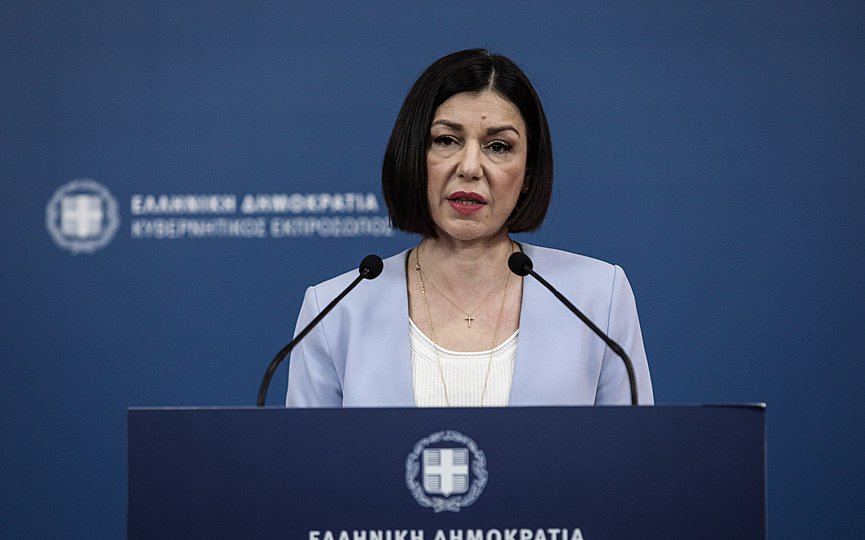General News
Meropi Kyriacou Honored as TNH Educator of the Year
NEW YORK – Meropi Kyriacou, the new Principal of The Cathedral School in Manhattan, was honored as The National Herald’s Educator of the Year.

ATHENS — The epidemiological situation in Greece remains extremely serious, government spokesperson Aristotelia Peloni underlined while opening the online press briefing on Monday.
"Last week there was a rise in new infections both in Attica and in most regional units of the country. It was also apparent that there was a small drop in the percentage of new cases among people aged over 75 years old, something that is obviously linked with the vaccination coverage of these ages, and that the new cases are mainly among people people between 20 to 60 years old, who move about more," she explained.
For this reason, Peloni added, a decision was made to impose additional measures to restrict people's movements and slow down the third wave of the pandemic, but while the spread of the virus occurred at great speed, de-escalation required time and sacrifices.
"It appears that the effort is becoming more and more difficult in this phase, due to people's fatigue and the variants that in total now make up 60-70 pct of new cases in Attica, while in Crete they are close to 90 percent".
Referring to the vaccine rollout, she underlined that over 1 million vaccinations have been performed, while some people have also received the second dose, and that, by the end of March, one million citizens will have been fully vaccinated. She also said that the vaccination appointment platform for at-risk groups among younger ages is expected to open in March.
At the same time, Peloni said, larger deliveries of vaccines are expected in Greece in April, so that by the end of that month all Greeks over 60 will have received the first shot of the vaccine.
She also said it was "extremely positive" that the process for establishing a European Vaccination Certificate – a proposal first put forward by the Greek prime minister – has been launched.
Finally, referring to the economy, Peloni underlined that "the government continues the reforms that will pave the way for a strong growth after the end of the pandemic. It is, of course, a fact that the recession in Greece was deep. However, according to provisional figures by the Independent Statistical Authority (ELSTAT), the recession is calculated to be 8.2 pct of GDP instead of the two-figure percentage that was forecast." Also, she added, Greece will not be the recession "champion", as some had predicted.
NEW YORK – Meropi Kyriacou, the new Principal of The Cathedral School in Manhattan, was honored as The National Herald’s Educator of the Year.

NEW YORK – The New York Greek Independence Parade on Fifth Avenue, commemorating the 203rd anniversary of the Greek Revolution of 1821, was held in an atmosphere of emotion and pride on April 14.
ANCIENT OLYMPIA, Greece (AP) — Even without the help of Apollo, the flame that is to burn at the Paris Olympics was kindled Tuesday at the site of the ancient games in southern Greece.
ATHENS – The Ilias Lalaounis Jewelry Museum (ILJM) Jewelry Artist in Residence Program (JaIR) accepts applications throughout the year.
NEW YORK — The historic hush money trial of Donald Trump got underway Monday with the arduous process of selecting a jury to hear the case charging the former president with falsifying business records in order to stifle stories about his sex life.
ATHENS - The New Democracy's ballot paper was presented at a special event at the Athens Auditorium on Monday.